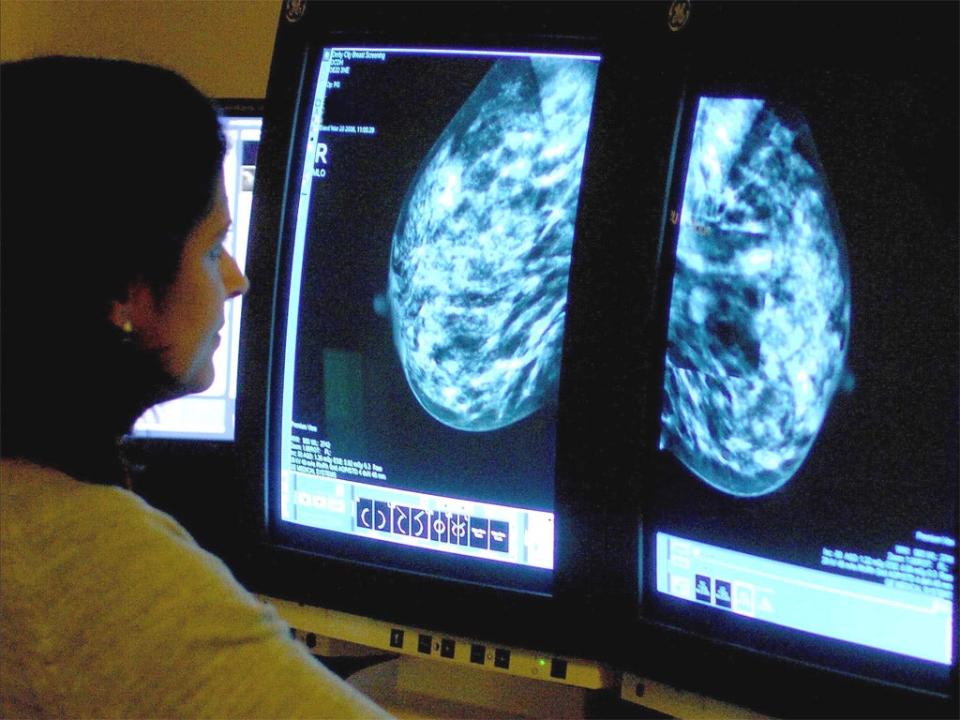Coronavirus: Almost 1 million women have not been able to attend lifesaving NHS breast screenings due to pandemic

Almost 1 million women living in the UK have not been able to attend breast cancer screening appointments as a result of the pandemic, campaigners have warned.
Breast Cancer Now forecasts around 8,600 of the women ensnared in the backlog could have been living with breast cancer which has gone unidentified – with their diagnosis postponed due to the public health emergency overwhelming NHS resources.
The charity notes early detection of breast cancer is key to stopping women dying from the disease which claims around 11,500 women’s lives each year in Britain.
Susan Daniels, who lives in South Wales, told The Independent her breast screening was cancelled back in March due to the Covid-19 crisis.
The 60-year-old, who works for a civil engineering company, said: “All the testings centres in Wales stopped screening. I was quite anxious. It was frustrating and disappointing but I wasn’t aware I had breast cancer then. I started subconsciously checking my breasts and found the lump by accident at the beginning of May.
“The doctor referred me for a rapid diagnosis. It’s early-stage grade two. They discovered it in both breasts which is really unusual. I was absolutely devastated to hear someone tell me I have cancer.
“Fortunately I did find the lump myself. I asked what would have happened if I hadn’t detected it and they said it would’ve just grown. I had both the lumps removed but if it had been allowed to grow I could’ve had both breasts removed.”
Ms Daniels raised fears there are currently other women out there who are “walking around with breast cancer” who don’t know they have it and the pausing of screenings is delaying their diagnosis.
“It is putting women at risk of death,” she added. “If I hadn’t checked myself I’d still be obliviously wandering around with breast cancer. And the prospect of that terrifies me.”
Ms Daniels said she was very anxious during the time between her diagnosis and the surgery – adding that she did not sleep properly and was highly emotional.
She said she would wake up at 3am in the morning for two hours before going back to bed again. Ms Daniels strongly urged the NHS to get screenings back up and running and clear the backlog - adding that women “need to shout and get their voices heard” if they are not getting their screenings and should be checking themselves.
Baroness Delyth Morgan, Breast Cancer Now’s chief executive, said: “Mammograms are a key tool in the early detection of breast cancer. We understand that the breast screening programme was paused out of necessity due to the global Covid-19 pandemic, but we must now press play to ensure that all women can access breast screening, and we cannot afford for the programme to be paused again.
“Governments and NHS health bodies across the UK must set out how the influx in demand for imaging and diagnostics will be met. The UK government must also seize the timely opportunity presented by the Comprehensive Spending Review, to urgently invest in recruiting and training NHS staff so that the workforce is equipped to give all women with breast cancer the best possible chance of early diagnosis.”
NHS halted breast screening programmes back in March to curb the spread of the virus and redeploy staff to fight on the frontlines of the coronavirus crisis.
Campaigners warned although screenings are now back up and running again, the picture is massively inconsistent across the country, with the number of appointments on offer drastically cut in the wake of new Covid-19 regulations. Such issues are further compounded by the huge backlog of women waiting to be screened after their appointments were cancelled.
Mary Wilson, consultant breast radiologist at the Nightingale Centre in Wythenshawe Hospital in Manchester, said: “Screening diagnoses around 19,000 breast cancers a year in England and there has already been a delay of over four months in the programme. To not only maintain pre-pandemic levels of activity, but also do a huge catch up with inadequate workforce levels is an enormous mountain to climb.
“Our most valuable asset is our staff – we simply have to invest in them. We desperately need more radiologists. You can’t make a radiologist quickly, so a long-term investment plan is essential. There’s no overnight fix. As a nation, we must recognise and address the workforce issues and invest in the NHS which throughout the pandemic has done a fantastic job. But we now really do need ongoing support.”
Breast cancer is the most prevalent type of cancer in the UK. There are believed to be roughly 35,000 people who currently have secondary breast cancer in the country.
The charity warns those working in imaging and diagnostics were massively over-worked before coronavirus plunged the sector into chaos – adding the delays have made women massively anxious.
Breast Cancer Now urges all women to go to all their healthcare appointments – as well as telling them to contact a health professional straight away if they see any new or out of the ordinary changes in their breasts.
Back in May, Breast Cancer Now warned thousands of women who have incurable breast cancer are suffering from acute anxiety their lives could be needlessly cut short due to the coronavirus pandemic disrupting treatment.
Patients are fearful they may die sooner than they should due to having surgery and clinical trials cancelled, struggling to get their hands on drugs such as hormone therapy, and experiencing delays to treatment and scans, the charity said.
Read more
Breast cancer: How to check yourself for signs or symptoms
Breast cancer screening for women in their 40s ‘could save up to 400 lives a year’

 Yahoo Movies
Yahoo Movies 